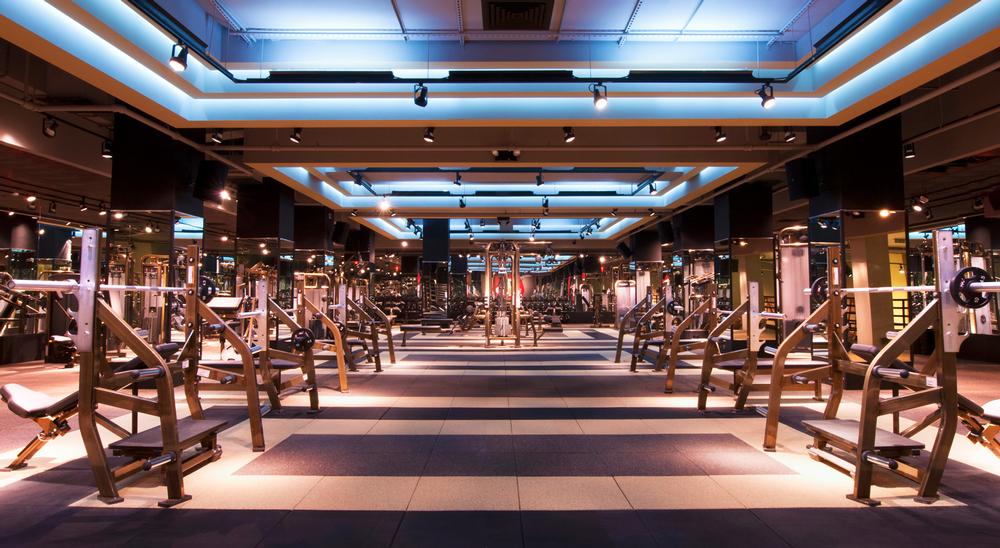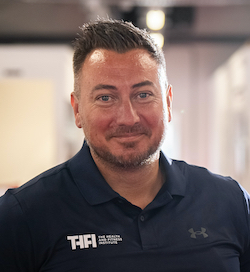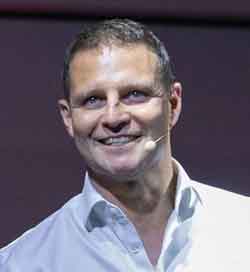Veteran fitness entrepreneur David Barton was an early adopter of metabolic intervention and has been using it for years, getting actors into shape for roles, as well as helping people who had previously tried and failed for years to lose successfully weight.
“Most people join health clubs because they want to change the way they look and change their body composition, but they don’t understand the science behind fat loss. It’s not as simple as calories in/calories out,” he says.
Barton – previously the founder of David Barton Gyms in the US – launched his latest health club concept, TMPL, in New York a year ago. The concept of metabolic assessment is central to Barton’s new brand.
“I believe metabolic assessment is the only way to predictably change body composition,” he says.
“People may, by luck, hit on the right formula, but exercise and diet alone will soon become obsolete – you have to have data and information.
“Metabolic assessment is smart, it’s the future and it’s the Holy Grail of our business. So many people go to a health club wanting to lose body fat, and at TMPL, we deliver on our promise and give people tangible results.”
Stress vs weight loss
Barton explains that a lot of people are getting fatter, despite working out and eating well, because of chemical imbalances in their bodies. For example, they might be producing too much cortisol because they’re stressed, which in turn drives the adrenal glands beyond capacity.
“In New York, I see a lot of hormonal imbalances which have come about through stress and lack of sleep, and these impact body composition,” he adds. “This can all be corrected though, and it’s easier than people realise to change body composition. By resetting and correcting the metabolic issue, we often get quick fixes with immediate results.”
TMPL’s success rate sounds impressive: it’s not uncommon for clients to lose 40lbs in eight weeks and many lose 20lbs in a month. Some have dropped 14lbs of fat in two weeks. “When they’re getting a quick outcome, they’re motivated to continue.”
One success story was a very overweight 40-year-old man, with 53 per cent body fat, who didn’t believe he could ever change. In five months, he lost 80lbs of fat and gained 20lbs of muscle, while his body fat content dropped to 15 per cent.
Correcting the metabolism
In order to establish an individual’s metabolic type, TMPL uses a detailed questionnaire made up of 180 questions about an individual’s sleep patterns, appetite, food cravings and the like. An algorithm is then used to determine the metabolic type and establish the necessary actions to correct the abnormalities that are stopping the body from achieving peak function.
“We analyse the person’s body chemistry,” says Barton. “Then we give them a combination of diet, exercise and supplements to correct the metabolism. Sometimes less working out can have a better result. We need to make sure we preserve muscle while reducing fat, because if you lose lean tissue your metabolism may be compromised.”
Barton adds that the programmes aren’t overly prescriptive. “We always work with our clients to draw up a plan that will suit them and fit in with their lifestyle,” he says. “We won’t tell a vegetarian to eat meat, but will look at where they can get extra protein. And if someone has a job that’s socially demanding, we can work with them to allow two days in the week when they’re allowed to drink.”
Fitness gets smart
Currently around half of TMPL’s one-to-one PT clients are on the metabolic assessment programme. Typically, they train three times a week with a PT and see a metabolic specialist once every two weeks, to measure their body composition and do 3D imaging.
It’s a good revenue stream for the club. Membership costs US$150 a month; PT is US$100 an hour and the eight-week metabolic typing programme costs US$1,000. For this, club members not only have the chance to quickly change their body composition, but they’re also given the right knowledge and tools to keep them healthy and slim for the rest of their lives.
Barton says demand is currently outstripping supply. However, going forward he wants to integrate metabolic typing into the membership model, so it becomes part of the standard onboarding and all members are able to benefit from it.
He’s also working on a model that he plans to make available to other gyms, as he firmly believes metabolic assessment is set to hit the mainstream. “There’s enormous demand for better ways to change body composition, and people will start to use data and scientific information to do so. The science is available and there’s no reason why metabolic assessment wouldn’t become the rule rather than the exception.
“Everything is getting smarter, so the health club industry has to as well. This is the obvious step forward for the health club business.”























































